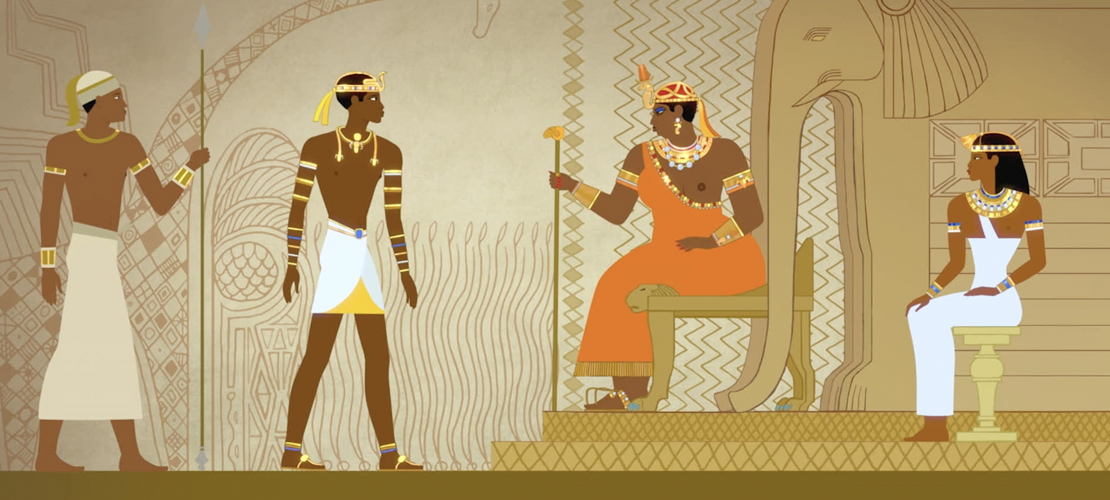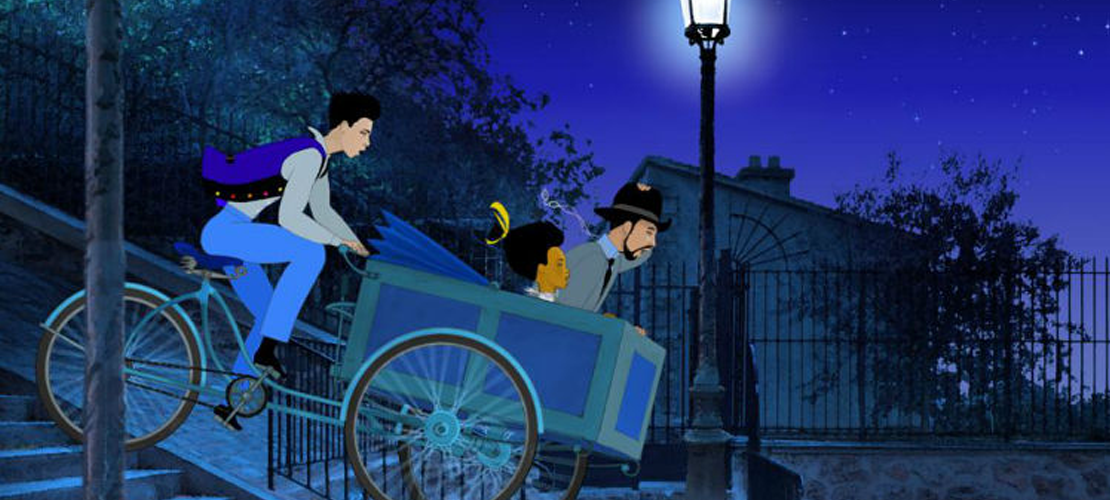- French Institute of Cambodia
- From January 19 to January 25, 2023
- Free
- Zineb Sedira, Filipa César, Léa Morin , Nabil Djedouani...
មានតែជាភាសាអង់គ្លេសប៉ុណ្ណោះ !
Dreams Have No Titles
Venice in Phnom Penh
For her film installation entitled Dreams Have No Titles, presented at the French Pavilion of the 2022 Venice International Art Biennale, the Franco-Algerian artist Zineb Sedira uses autobiographical narrative, fiction and documentary to explore neglected historical narratives and to think about the intertwining of cinema and politics. She evokes, in particular through the major role played by the Algerian film production, past and present international intellectual and artistic solidarities. For the first time after Venice, her film Dreams Have No Titles will be shown to the public for a special screening at the French Institute of Cambodia.
Echoing this, the program “Cinema, a weapon: Cine-Struggle, Cine-Movements, Cine-Geographies” offers a plurality of voices and mechanisms for cinematographic reflection on the current political potential of the decolonial and anti-racist struggles of the past. “Cinema, a weapon” borrows its title from the program of films and meetings organized by the Algerian Cinémathèque in parallel with the 4th Conference of Non-Aligned Countries in September 1973 in Algiers.
Thursday, January 19
At 6:30pm – Outdoor
“Zineb Sedira, Dreams Have No Titles” by Zineb Sedira (2022) // 24 minutes – English version
Starting from the desire that animated the cinema of the 1960s and 1970s to engage in cultural and political activism in France, Italy and Algeria, the artist embraced much broader themes such as the fight against discrimination and racism, decolonization, freedom, solidarity, identity or even the family sphere. Zineb Sedira is interested in the cinema of the 1960s and 1970s, a period when the first co-productions between France, Italy and Algeria emerged.
Followed by a conference with Jean-Michel Filippi around the square facing the Cambodia Post Office, “An unusual place”, which looks back on the history of this square at the time of the French Protectorate (1853-1953).
—
Saturday, January 21
Cine-Struggle at 2pm
“Le Glas” by Ferid Dendeni (1968) // 5 minutes – French version with English subtitles
Le Glas by Ferid Dendeni (pseudonym of René Vautier) is a denunciation of the killing of three revolutionaries in Salisbury in Southern Rhodesia (now Zimbabwe). This indictment film against colonial violence is conceived as a cine-poem written by Vautier, read by Djibril Diop Membety with paintings by the South African painter Gerard Sekoto, and a soundtrack borrowed from members of the Black Panthers in exile in Algiers. Algerian cinematographer Ali Marok also collaborated on the film.
“Moonscape” by Mona Benyamin (2020) // 17 minutes – Arabic version with English subtitles
Through surreal stagings inspired by the Arab music industry, NASA archive images, film clips and found footage, as well as screenshots of electronic correspondence between the Lunar Embassy and the director, the film comes in the form of a music video for a song performed in Arabic by a duo. This song evokes the story of Dennis M. Hope who claimed ownership of the 1980 moon and founded the Lunar Embassy, and that of the director, a young Palestinian living under Israeli occupation and determined to end the plight of his people in every possible way.
“Spell Reel” by Filipa César (2017) // 96 minutes – Portuguese version with French subtitles
In 2011, a film archive and audio material re-emerged in Bissau. On the verge of complete destruction, these tapes testify to the birth of Guinean cinema as an essential part of the vision of decolonization of Amílcar Cabral, liberation leader assassinated in 1973. In collaboration with Guinean filmmakers Sana na N ‘hada and Flora Gomes, as well as with many other allies, Filipa César imagines a journey where this fragile material of the past operates like the visionary prism of a piece of shrapnel through which we look. Digitized in Berlin and projected in different contexts – in what could look like a transnational traveling cinema – the archive provokes debates, stories and premonitions. From the most isolated villages of Guinea-Bissau to European capitals, these silent archives become a place from which to seek an antidote to the global crisis.
—
Tuesday, January 24
Cine-Geographies at 6:30pm
“Just a movement” by Vincent Meessen (2021) – 108 minutes – Version française
«Omar is dead!», a voice cried out in Dakar, 11 May 1973. The eldest of the Blondin Diop family, a young militant philosopher, and the articulate Maoist in Jean-Luc Godard’s La Chinoise had allegedly committed suicide in his Gorée Island prison cell. His family and friends did not believe a word of it, demanding that light be shed on this political crime. A phantom haunts the Senegalese capital, itself in a state of unrest.
—
Wednesday, January 25
Cine-Movements at 6:30pm
“Mise en scène” by Zineb Sedira (2017) // 9 minutes – No dialogue
Mise en scène is a montage of 35 and 16 mm film sequences, found, digitized and interpreted by the artist. This “staging” is a sort of a beginning for the film Dreams Have No Titles (2022) which draws its material from a body of co-productions and cinematographic productions, particularly of an activist nature, which have had an impact on postcolonial movements.
“Ali in Wonderland” by Djoura Abouda and Alain Bonnamy (1976) // 60 minutes – French version
For experimental, political and radical film on the condition of immigrant workers in France in the mid-1970s, “all the images were filmed like punches”. Ali in Wonderland is a cry against exploitation and racism, which uncompromisingly points to the role of the French state, the media, capitalism and colonization in this system of domination which crushes those who suffer from it. Shot in 16mm, the film combines formal power and inventive aesthetics with a militant message and a direct voice given to the marginalized of French society.
“Rock Against Police” by Nabil Djedouani (2020) // 30 minutes – French version
Nabil Djedouani’s Rock Against Police is a film “conceived as a collage” that evokes the “Rock Against Police” network born in the 1980s in France in the face of racist crimes and abuses of police repression. The film, like many of the concerts of this movement, is part of a militant approach to assert freedom of movement, expression and creation. For this, Nabil Djedouani resorts to archival investigation, performance and the use of rare archives from this period which so echoes our present.





